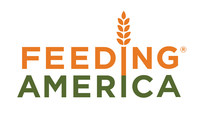The latest Feeding America survey data shows that around 85 percent of its network of 200 food banks reported seeing demand for food assistance increase or stay the same for February compared to the previous month, about a 20 percent increase from the prior survey.
Over the past two years, the SNAP has expanded to provide additional benefit allotments to help low-income households weather the storm. With emergency declarations ending across the nation, those benefit allotments are expiring state by state, and another hunger crisis is looming, according to Feed America.
It expects that demand for food assistance will remain elevated and may grow as this assistance goes away. On average, when the Public Health Emergency declaration ends, participants in emergency allotment states will lose $82 a month in SNAP benefits. For participants who qualify for the minimum SNAP benefits, their monthly allotments will drop from $250 to $20.
"The reality is too many neighbors must continuously be forced to make difficult decisions between paying for food or other necessities like rent and medicines. Nearly one-third of a low-income household's budget is spent on food, and any incremental increases to food prices can have a dramatic effect to their overall stability and security," said Claire Babineaux-Fontenot, CEO of Feeding America, in a statement. "Community food assistance continues to be an essential piece of a household's budget planning. In order for the Feeding America network of food banks, food pantries, and meal programs to continue to provide food and assistance to the tens of millions of people turning to us for help, we need continued support from both the public and private sector."
Related: Publix Creates Program to Alleviate Hunger; Chobani Partners With Swipe Out Hunger to Tackle College Food Insecurity.

